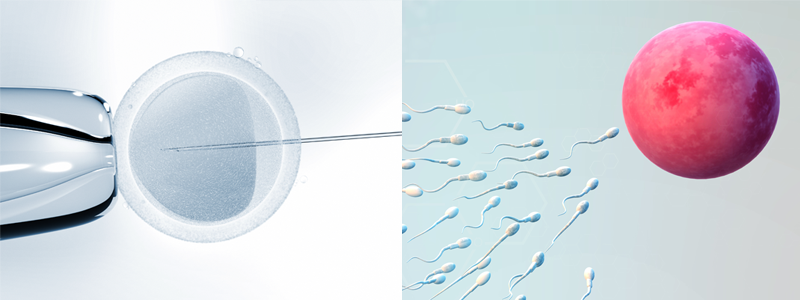As highlighted in our egg freezing guide, an increasing number of women are deciding to freeze their eggs as a way of preserving their fertility. There are many reasons women choose to freeze their eggs:
- They simply have not found a partner
- They wish to pursue their career and delay motherhood
- Due to a medical diagnosis, such as cancer
- Or, they feel that they do not have the right environment to raise a child in.
However, once you’ve completed the process of egg freezing, there are still important things to consider, such as the length of time eggs can be kept frozen for, the success rate of using your frozen eggs and the costs involved.
How long can you freeze your eggs for?
After the procedure, social egg freezing lasts 10 years (maximum). However, there is currently a petition to extend this storage period. In cases where eggs were frozen for medical purposes, the storage limit is 55 years.
Hence Professor Geeta Nargund, Medical Director of CREATE Fertility, argues that this privilege should also be offered to those seeking fertility treatments to emancipate and empower women. “Extending the storage period for frozen eggs is essential to help women have a family when they are ready” Professor Nargund says “The law needs to catch up with advances & success in egg freezing”.
Research into the social reasons behind egg freezing have identified that women commonly use this technology because they have a fear of running out of time to form a family, they do not have a partner, or a fear of future regret. Hence, many believe that the 10 year egg freezing storage limit is not sufficient; it adds a pressure on women to conceive within a time period that may not be suitable for them.
What is the success rate when using frozen eggs to get pregnant?
To give the best chance of freezing high quality eggs, it is recommended that you freeze your eggs before the age of 35. Regardless of the time you decide to freeze your eggs for, it is always important you bare in mind that there is no guaranteed success of getting pregnant via IVF using frozen eggs. Variables can include the age of the egg when it was frozen, the ability of the egg to survive the egg thawing process (there is currently an over 90% survival rate) and the success rate of fertilisation in the eventual IVF treatment (which has similar success to that of IVF with fresh eggs).
For more information see our egg freezing page.
The cost of freezing eggs over time
The starting costs of egg freezing are around £2,850, and those considering this treatment must also take into consideration the cost of annual storage fees, the thawing procedure, and the IVF procedure further down the line.
You cannot currently freeze your eggs with the NHS, however Dr Nargund is campaigning for the government to allow women between 30 and 35 to freeze their eggs for free. She told The Mail on Sunday, ‘We don’t want to deny a whole generation of women from freezing because it’s too expensive.’
However, whilst egg freezing is an important process in empowering women to have control over their fertility, education around this process is paramount. Many women only become aware of this option in their late 30s/early 40s, when it is no longer a viable or recommended solution to them.
If you’re thinking about freezing your eggs and want to know more about the process, and whether this treatment is suitable for you, please contact CREATE Fertility to arrange a consultation.






